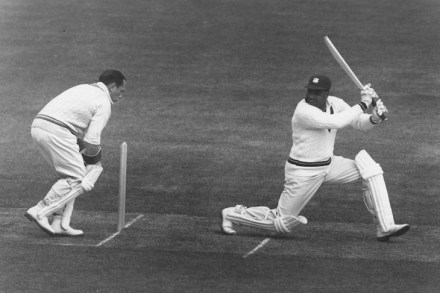Overs and outs
E.W. Swanton’s first published article appeared in All Sports Weekly in July 1926, soon after his 19th birthday. Thence, swiftly, into Fleet Street, covering public-school sports for the London Evening Standard and ‘rugger’ for the Times. In the summer of 1930 he made his Test debut, reporting the Ashes match at Lord’s in which young





















